People say love traps you. In fact, it’s the opposite. Love makes you free, says poet Kumar Vishwas
Kumar Vishwas was a rebellious child, who fought with his father as he wanted to become a poet, not an engineer. But there is a soft side to him. He fell in love, and that, according to him, changed his life
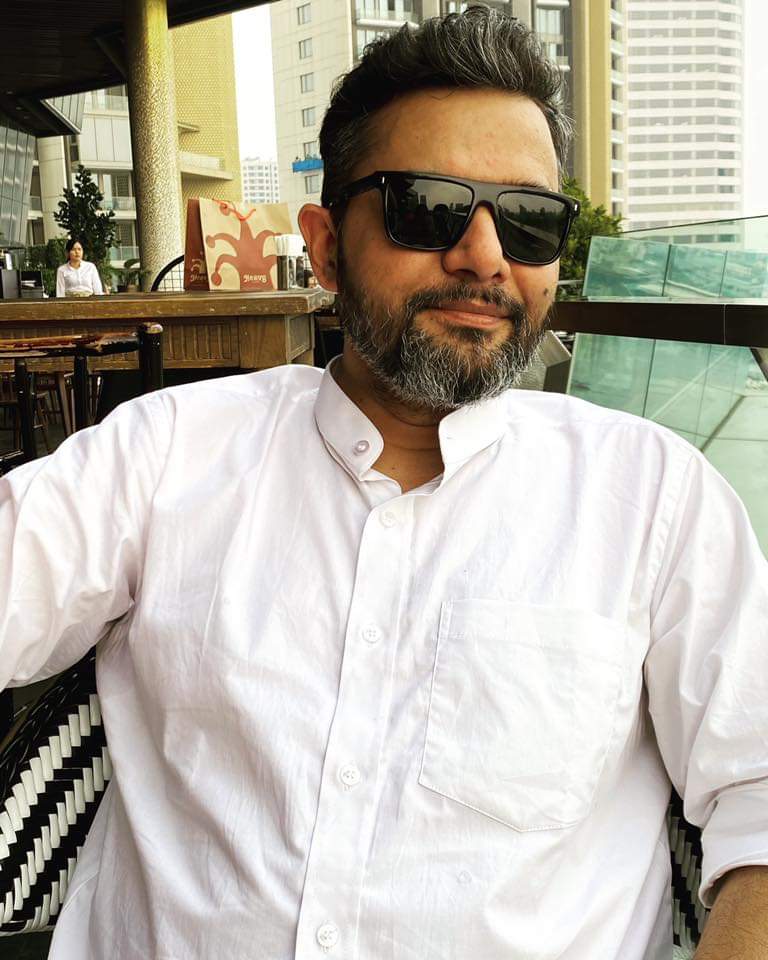
What stage of life are you in at present?
When someone crosses 40, he is standing at a crossroads. He often looks back to see the journey that he has lived so far and ponders over his achievements. There is often a fight between fatigue and ambition. When the fatigue takes over, he tends to give preference to success over ambitions and often says: “Look, I have already achieved so much. Look at my journey! I didn’t even have Rs 100 in my pocket.” But he gets his motivation when he sees that those who have been a part of his life from the past 15 years are much ahead of him. He then feels that he hasn’t achieved enough and 23-24-year-olds are doing better than him. I am standing at that crossroad. In the Mahabharata, a line was drawn and a decision had to be made to be on this side or that … I am amazed at Mahabharata. I think, there should have been a separate intellectual property which should have analysed things from the outside and told us if the decisions taken were right or wrong because Mahabharata was very confusing. I am at that stage in life …
So, sometimes fatigue wins and sometimes ambition?
One thing I am sure about is that greed has never won. I belong to the middle-class, a class that is financially very secured. My father, Chandrapal Sharma, was a disciplinarian and mother, Rama, was a very lively woman, she was into folk music. My inclination to music comes from her. I have not learnt music. Music was not allowed in my house. My father was against it.

Where were you born?
I was born in Dholana village in Ghaziabad. I was born in 1970. Mine was a typical middle-class upbringing. There was too much discipline and too many expectations. My father was into literature. He was a very learned man, but never liked his subject. He felt that Hindi was not very lucrative and he would compare himself with English and Maths teachers. We lived in a joint family. My father’s sisters also lived with us. My father educated them and got them married. Since childhood, I was interested in music or functions that used to take place in the house during festivals. But I could never say this to my father that I wanted to be a poet. I was the youngest among the four siblings. I am not saying that I didn’t have a childhood as my father was a strict disciplinarian. I would read poems, short stories, film reviews that would get published in newspapers and magazines. So, there were many books in my school.
To watch Kumar Vishwas’ interaction with the school students, teachers and the virtual classroom teachers, please watch the interview
Are you reminded of your school days after visiting the school?
Yes. In small towns, schools are the only place where you could go out of the four walls of your house. Schools give you the exposure that you need. It gives you the sense of ownership … my school, my bench, my bag, my lunch box. Earlier, there were no lunch boxes. Mothers would wrap two chapatis and some sabzi in a cloth and a newspaper. There were no water bottles. Everyone would queue up outside a tap and wait or fight for their turns. It gave you a feeling of unity and belonging to a community. I remembered all this after visiting your school. No one knows who they all are going to be or whose journey will take one where.
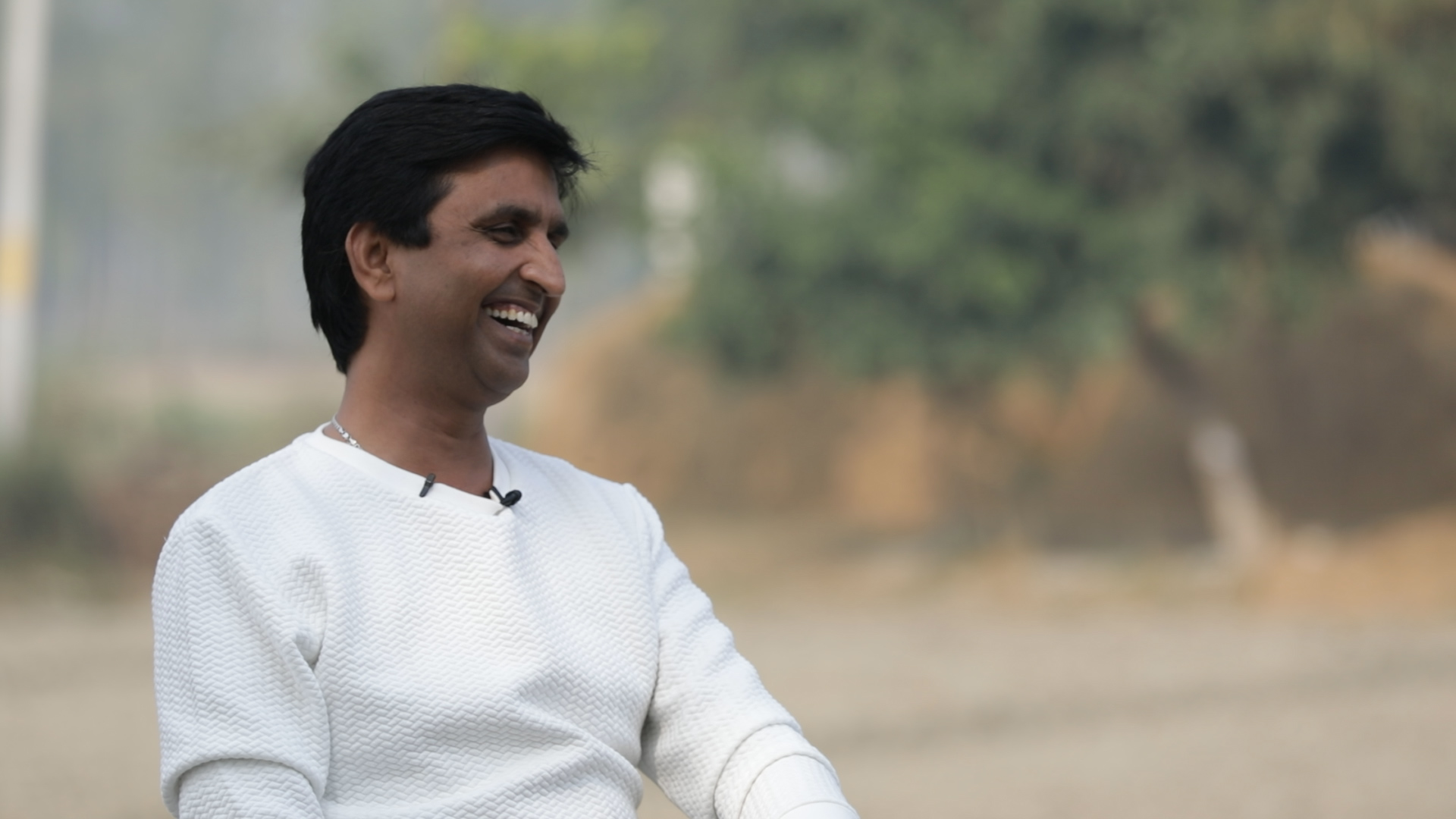
What happened after you passed out from school?
My father pressurised me to become an engineer as he felt I could become one. It was a very stressful phase for me. Those 5-6 years were full of stress and depression. But let me also tell you that I am what I am today is because of those 5-6 years. The popularity, the financial security, the acceptance, my talent … everything is thanks to those 5-6 years. In the 80s, it was very difficult for you to tell your parents that you didn’t want to be an engineer; that you wanted to do BA instead and learn poetry …
How did you tell them that?
In the first year of Engineering graduation, my roommate was from Punjab and his father was in the Army. His father had given him some books to read other than the course books. He would read those in his free time. After he left, I was curious to take a look at those books that costed Rs 1-2. One night, I picked up a book. It was a religious book. It was mentioned in the back that you must always do what your heart says and you should never go in the opposite direction. I closed that book and I sat. My inner voice told me that I wanted to be a poet and I shouldn’t be here studying engineering. I packed my holdall and the iron trunk that I had, I stepped out, called for a tanga, went to the station and came back home. My family was very surprised that I was back bag and baggage? I didn’t have the courage to tell them. I made some excuses. My father even said that if I was not liking the college, I should start preparing for the IIT. My brothers were engineers and were out, so I told my sister. She was aghast! And then I told my mother. She is a typical mother, like how all Indian mothers are. She tried to persuade me because she knew my father was going to be furious. One night she told my father and the next day big drama happened! Initially my father couldn’t believe me. He thought he would give me two tight slaps and scold me a bit and I would go back. It was the first time when I had confronted my father. My father put his foot down. He even gave me examples of poets, national and international, who completed their education first and then wrote poems. He asked me to book my tickets. I didn’t go. He then asked one of his friends to book my ticket. I knew my father was not going to humiliate much in front of this friend! So, I told him I didn’t want to go. All this went on for 10-15 days and those were horrible days! My father is a rock-solid man, but he cried. My mother cried a lot. In fact, until I was in the second year of my BA, my mother observed a lot of fasts for my sake. She had lot of expectations from me. She thought all her children were brilliant and she felt I would at least become a collector, which is a big deal in Uttar Pradesh. Now, I am more possessive about my mother is because I remember what she has done for me.
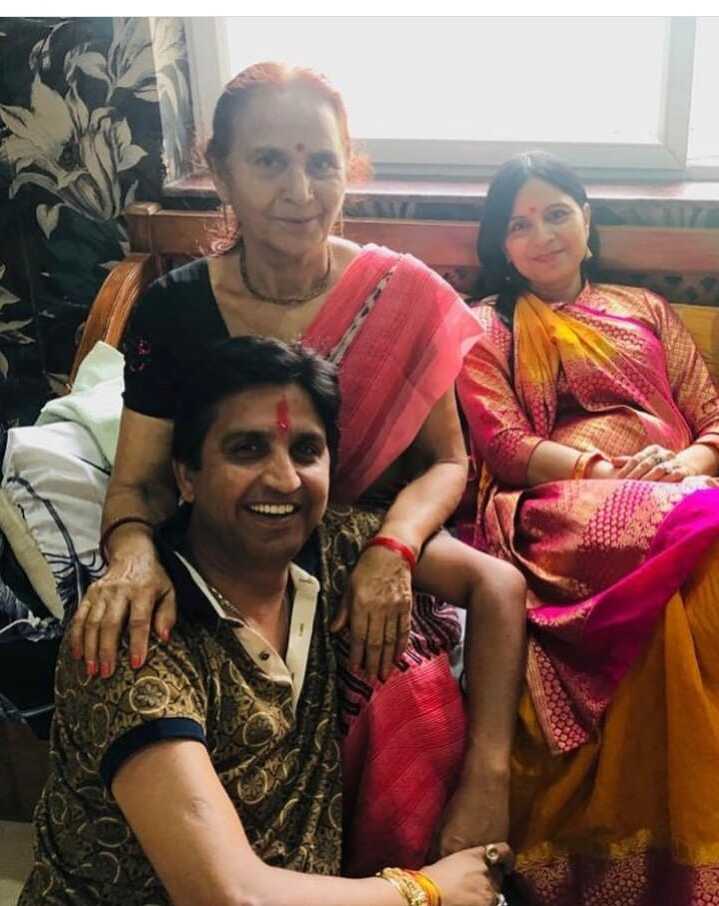
What about your father?
By the time I came back to pursue BA, it was November. The admissions were over. My father put a condition, and I am glad he did this. He said my other children are still studying and now that I have made up my mind to do this stupid experiment, I will have to spend my own money. He said until I turned 18, he would give me two pair of clothes and food to eat, but I will have to do all the household work. He gave a strict warning to my mother and brothers to not to give me a penny. I had to buy the admission form, which was for Rs 123. My father’s friend was a librarian and loved shayaris. He was fond of me. He introduced me to this renowned journalist, who also worked with Atal Behari Vajpayee. I went to him to ask for work. He asked me if I wanted to write a story for kids. That dark phase helped me as no one would talk to me at home, my friends has stopped talking to me. Some even thought I had started doing drugs. He asked me to write two stories and said he would pay me Rs 64 per story. I wrote the stories. He took my stories to Delhi. But both were already printed. So, I wrote more stories. By doing so, I had some cash, but I was still falling short of Rs 10-15. I wrote an essay on Makar Sankranti for a magazine for which I got Rs 35! That’s how I got into the college and in the first year I got 76%, which was more than the regular students. I had worked very hard. But my father was still upset.
While all this was happening, did you talk to him at all?
If you know how small towns work, then if your father is sitting in the same room, you will not sit in that room or not you will not talk. I was also like that. In fact, my daughters, who are grown up now, have broken all the barriers. They freely talk to him. Recently, on his birthday, all the grandchildren made him cut a cake at midnight. That was quite something!
In the second year, a creative accident happened. Many literary functions used to be organised then and my father was in the organising committee for many of them. That time, the poets and artists were not very easy going. And all these reports used to come to my place. So, my father would get very angry.

Probably, that was the reason he didn’t want you to be a poet?
He felt there is no money in poetry. Hence no bread and butter. He was thinking as a father. But I was very much interested in these events and so I got in touch with a lot of poets and editors. I used to read a lot.
One day, a kavi sammelan (a meet of poets) was organised at a place 11 kms from my place. I went there and stayed with my friends. His relative was the organizer. They had invited all the poets, but they forgot to invite the opening poet! They were in a fix and frantically looking for someone until my friend suggested my name. I refused, but they didn’t listen to me. I was pushed on the stage. In fact, the announcer hesitated while reading my name as I was the only unknown name, others were popular faces. I sang two songs. The youngsters were really impressed and clapped a lot. At that time much meets used to be organised until dawn. So, when the break happened, organizers from other places, who were there to look for fresh talent, approached me, and not others. By the time I left early morning, I had invitation for seven kavi sammelans and Rs 101, which was a big amount back in 1988. I came back home and thought to myself, that I am sending my writeup and stories to other publications, but this is each money! I still remember, I went to the market and bought a kurta for Rs 52 which had huge metal buttons on it! I started attending many such events. Though I wasn’t very much interested, but this was each money. In one year, I had earned enough money to buy a bike which was very popular back then and costed Rs 17,000. And I became the most popular boy of my college.
What was the next stage?
In the next stage, I fell in love. That girl changed my life and groomed me. We had opened a small cultural organisation in my town. I was the main person. One day we had organised a debate competition. She lived in a town close by. She had come from there. She was different and full of life. In fact, she came second or third. After 2-3 days I asked our common friend about her. She laughed and said that girl had been asking about me! I went along with my friend to meet her, which was quite a brash thing to do back then! While we were on our way, we bumped into my brother’s friend. There was one more boy sitting on the bike. He happened to be the girl’s brother! So, I changed the story and told them that there was a debate competition next month and I wanted to meet her regarding that. Everyone respected my family as we would actively participate in the college competitions and would win. So, they took me to the girls’ place. Her father, a Sanskrit scholar, was sitting outside. I was taken inside. She came and was aghast to see me! In fact, I used to write letters for her. There was no way to hand those letters over to her. So, I got them printed in a small newspaper that used to get published in her town! The editor knew me so it wasn’t difficult!
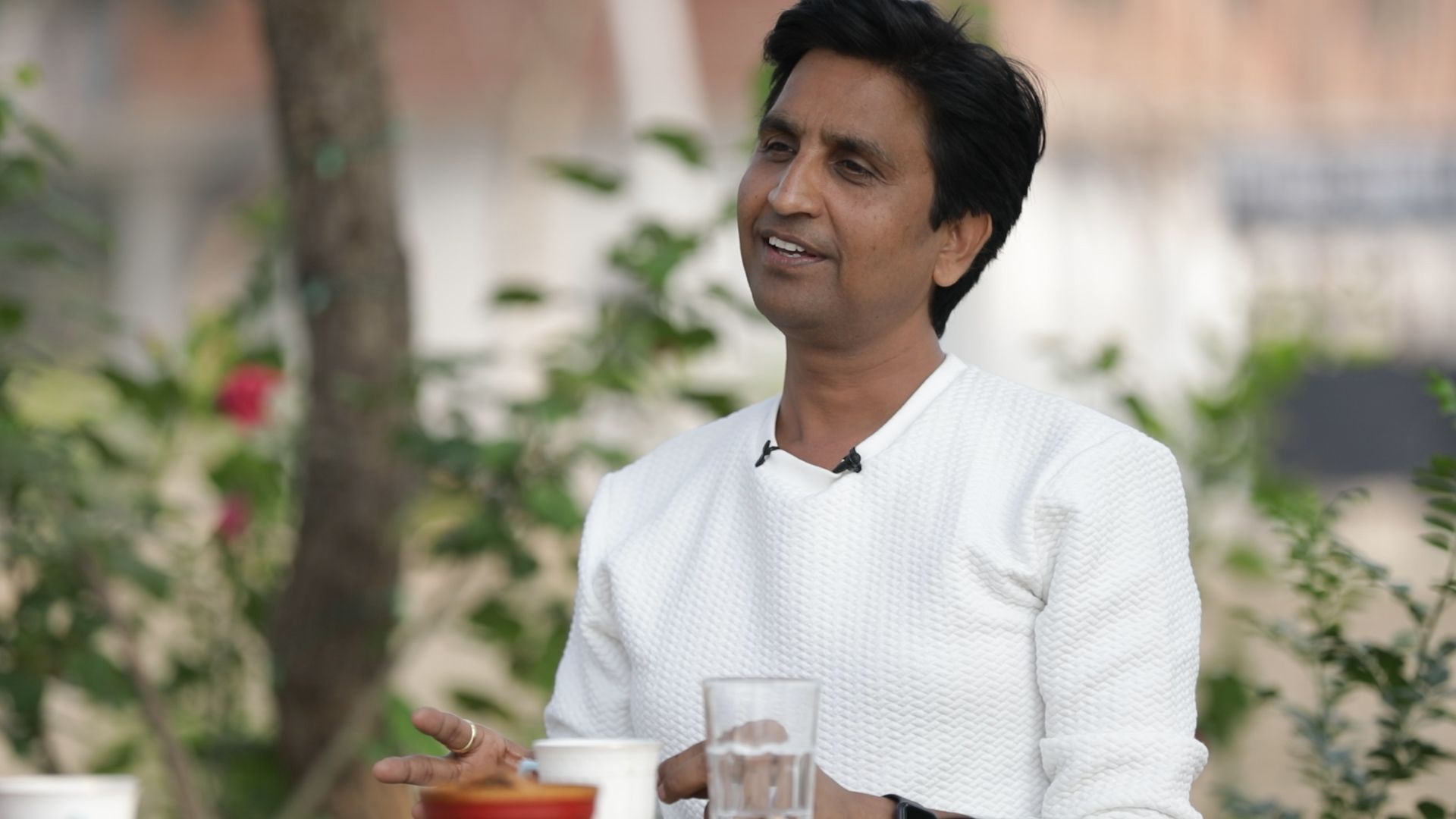
So, love changed you! Tell me something interesting.
It was her birthday, but that week the newspaper was not going to be published. So, I booked a slot on the radio where I used to work and dedicated a song for her! So, love changed me. It gave me a direction. It went on until I graduated from the university with a gold medal and started working. But this girl changed my life.
I remember my father once asked me what does being in love with her mean to you? I said I feel like becoming a better person.
Yes. I agree. They say love traps you. In fact, it’s the opposite. Love makes you free. I wouldn’t have been what I am today had I not fallen in love. I was with her for seven years and we had met only 10-12 times because there were other priorities. But I am a successful poet because I fell in love, and I am what I am today is because of wife, and that is also love. But I was depressed for the next 3-4 years after that relationship with that girl didn’t work out because of many reasons, primarily societal, and because of the layers that families have. So, I was depressed. But I was still a successful poet. I had started teaching, which was getting me more money than my salary.
What was you first job?
My first job was in Sri Ganganagar at the Indira Gandhi Snatak Uttar Mahavidhyalaya. I was here for a year. Then I became an assistant professor and moved to Shahpura, Bhilwara. Then I got transferred to Bharatpur government college. In 2000, I moved to Lajpatrai college in Ghaziabad. In 1995, when I was in Shahpura, that is where I met my wife who was Geography assistant professor.
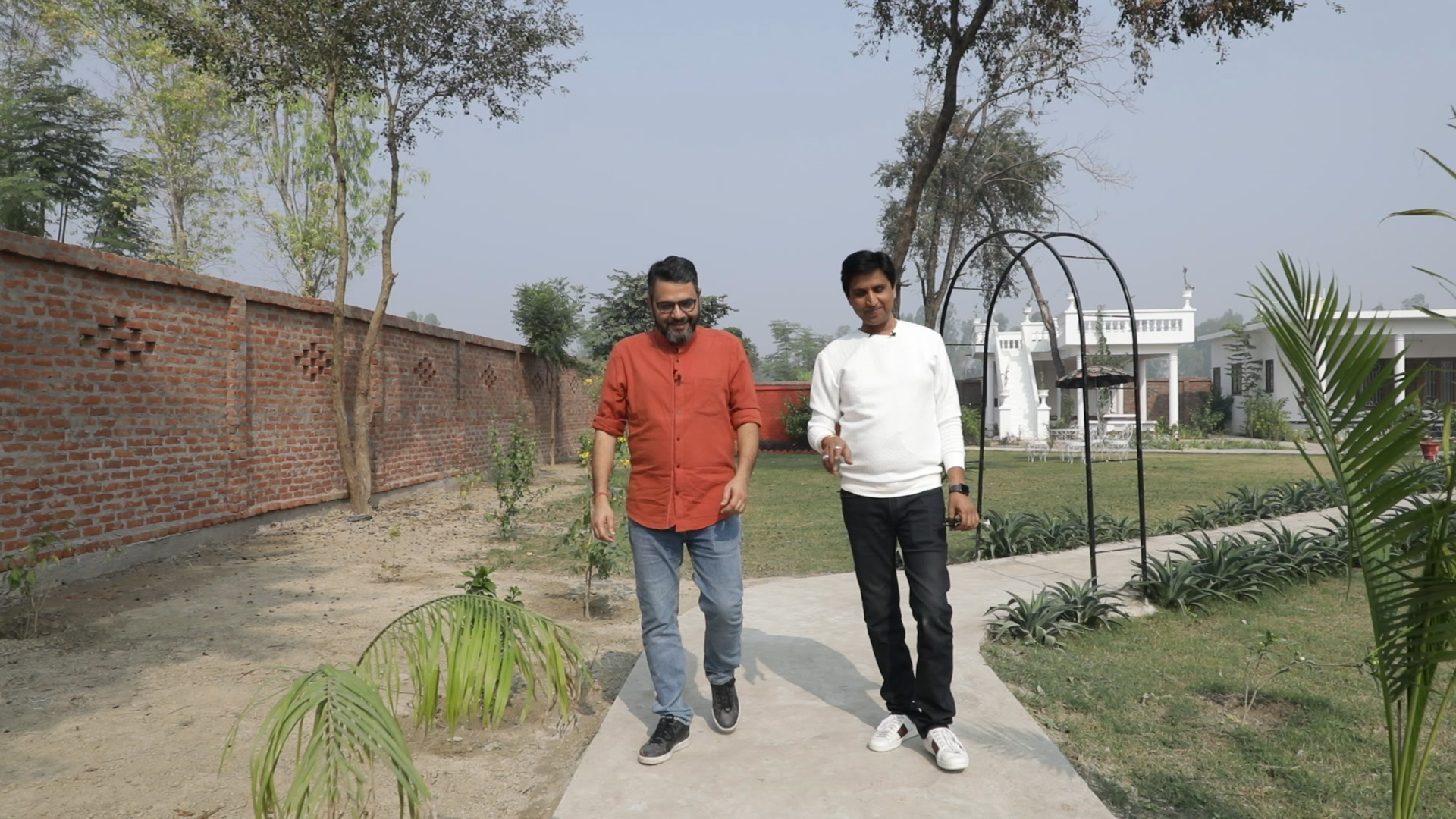
What’s her name?
Manju. When I had met her, she was very naive and grounded. She didn’t know that poets could earn! But she is not into money even after so many years of our marriage. She bought an order to my life. Brand Kumar Vishwas is all because of her. She keeps me grounded and our family together. She is still teaching, but she is a complete family person.
At what point in time did you feel that you will become famous? And how did success change you as a person?
I still don’t feel I am famous. Popularity is a relative term just like money and power. Success has taken over my personal space. Now I can’t stand somewhere and eat chaat and paani-puri. It has reduced my friend circle. I anyway never had many friends as my life was very abrupt. I was a failure when I was growing up, so my small-town friends left me. Some friends are no longer a part of my life because of politics. The greed of power and ambition made them strange. I had to befriend my brand name. My wife is my best friends.
Tell me about your children.
I have two daughters and like all fathers I adore my daughters. The nickname of my elder daughter is poem! I named her that when she was born. Even the doctors would laugh. Her real name is Agrata. The younger one is Kuhu. When she was born her voice was very sweet. Her mother named her. They are cut off from my mid-size celebrity status. Like, when people come for autograph or photograph or when the CRPF comes to me at the airport for photos. They are detached from all this, and the benefits of my popularity. They like to study and lead a normal family life.
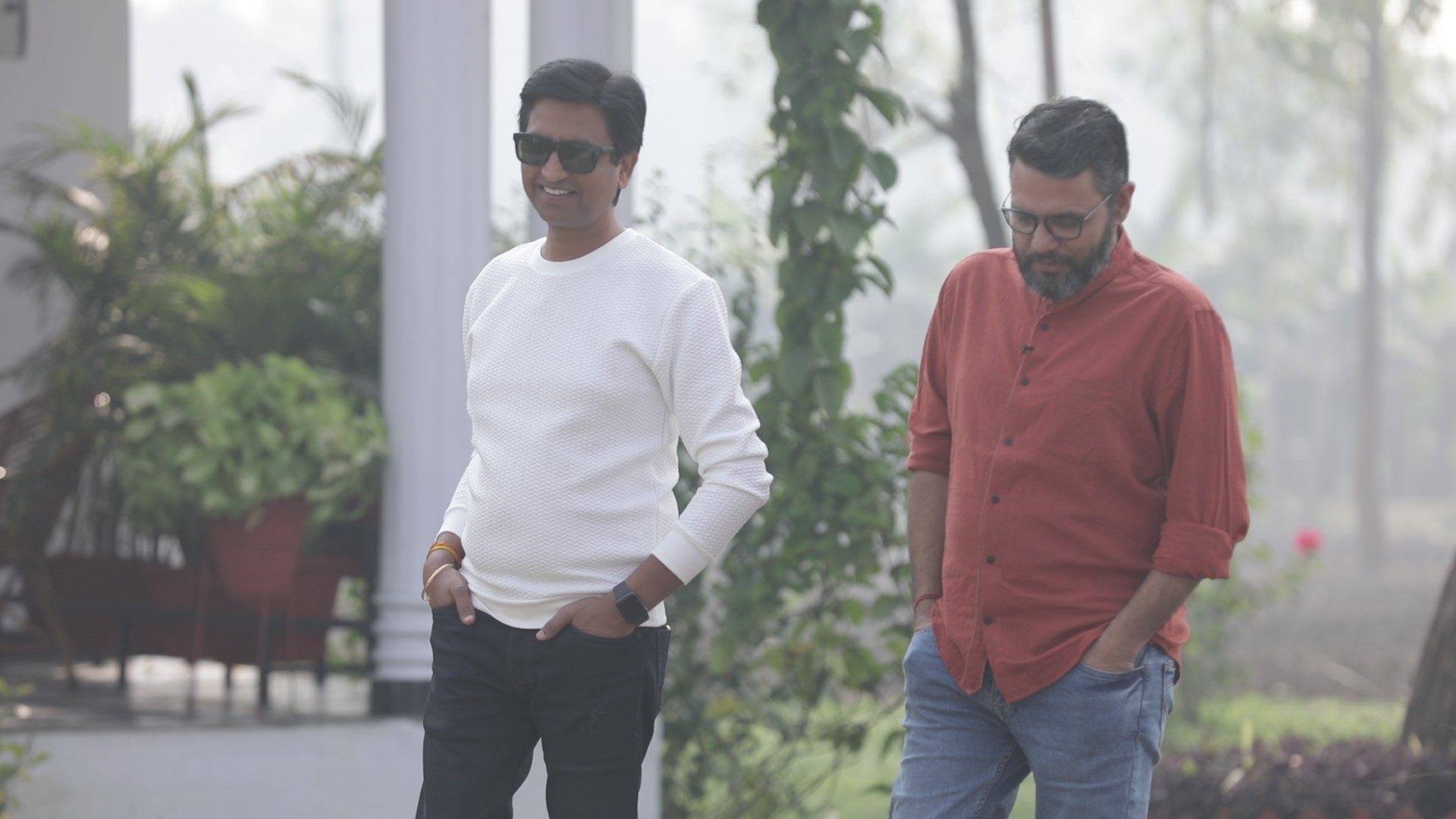
What have they studied?
The elder one graduated from the University of Warwick, London. She is working at a multinational firm in London. She spends as much as she earns! The younger one is in the 12th and is studying psychology.
The way your personality is, you are always happy and you make others happy. Is this how you are or sometimes you have to wear a mask?
Yes, sometimes I do wear a mask during public appearances. People want to see me in a particular way. Sorrows are part of everyone’s life, and they are a private property. But, if you are famous, your each and every moment is documented. Once I enter a public event or a family function, I am no longer me. I can’t just sneak into a function, sit in a corner and enjoy. So that personal space is gone. Secondly, if you have so many followers on Twitter, Facebook and your videos are watched by millions, then you can’t afford to disappoint those people or make them depressed. But that is also good for a poet. While I was teaching, there was a very senior professor. She would always bless me by saying: “May your heart break!” She would say it would help me as a poet.
How are you as a son?
I was a good son to my mother. I was a rebellious child so I know I have hurt my father. He wanted a normal life for me. They never say this to me, but people tell me that they are happy with what I have achieved. I want to give them all the happiness.
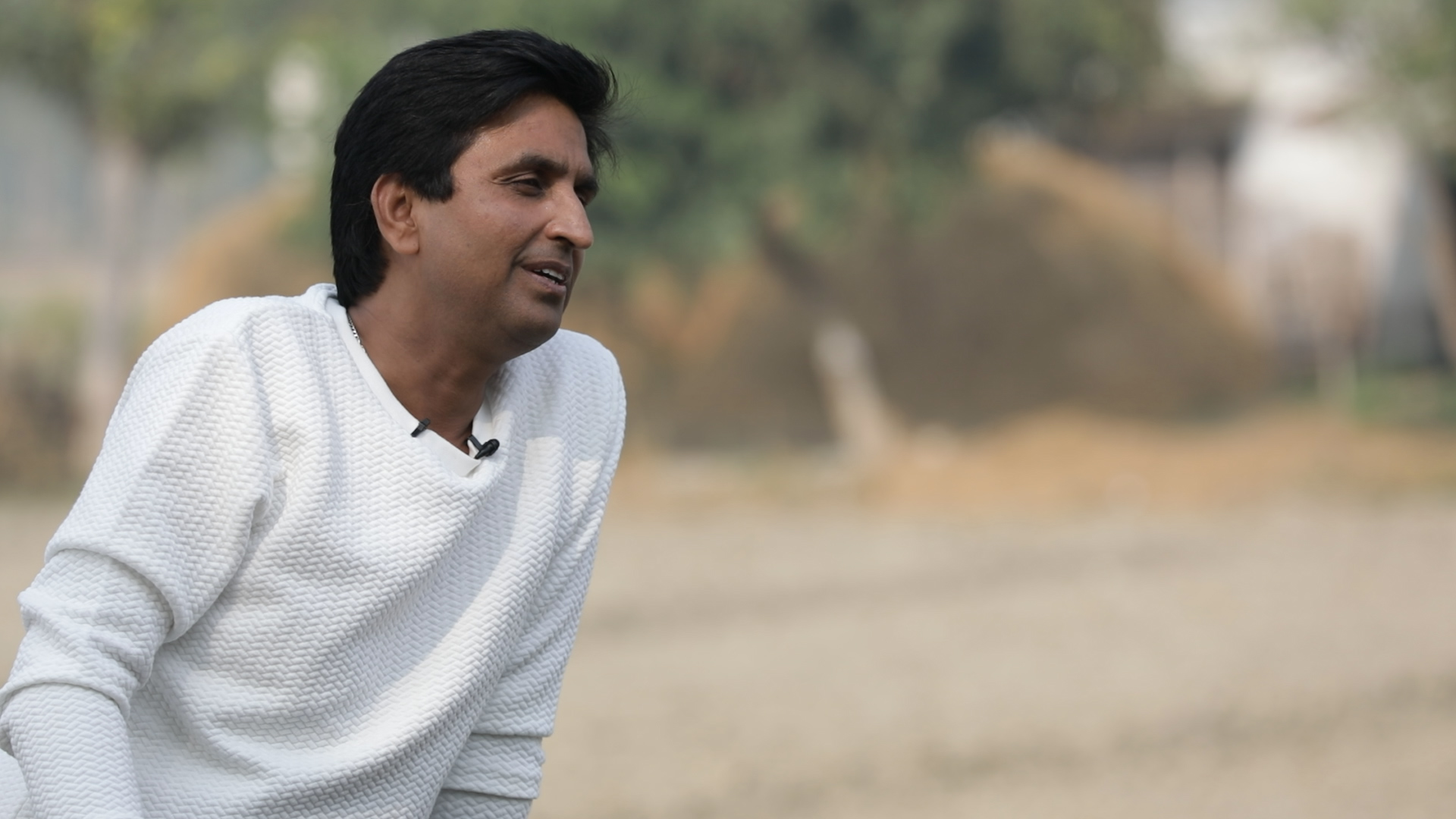
People like us are never fully present in a moment. What are the things that still touch you?
In this world of full of emotions, your emotions become a business for you. While I perform, I am totally involved. It happened many a times that while I was performing on stage, I saw myself standing amid the audience and I was looking at Kumar Vishwas in silence. It started happening a lot, so I thought it’s some mental problem. I went to AIIMS. Nothing came out of it. So, I went to Rishikesh for meditation. I met an officer from Kerala who was working with Power Grid. He was retired and was into meditation. I asked him two things. One, that I helped others, but they never come back to help me and that makes me feel very angry and hateful towards them. He replied: “I am sure there were people whom you had not met, but they helped you a lot. These were the same set of people you had come to help you”. Second thing he told me was: “Like in power grids, we make energy, but the output is somewhere else. Similarly, if you do good now, it will come back to you at some point in time. If you will do bad things, they will definitely come back to you.” He said it’s normal to be lost. Like, we are at slow right now. Life isn’t slow here. It’s in tune with the nature. This is how thing should be!
Text: Swati Subhedar

